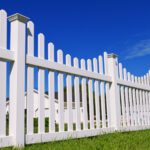Have you noticed problems when inspecting residential drainage and wondered if you could do more to keep them clean?
If your home pipes are getting clogged, you won’t be able to use the drain for its most common purposes–the bathtub, the sink, and the toilet, for instance.
Do you wonder what you could be doing wrong to mess things up so often? If so, heed this piece, as not doing so could harm you and cost you a lot of money.
Keep reading about residential drain cleaning mistakes and how to avoid them.
1. Ignoring Blockage Symptoms
Many residential drain cleaning mistakes can arise from ignoring the signs of a blockage in your home’s plumbing system.
Common signs of a blockage include slow draining, backed-up water, gurgling and foul odors. If these signs are left unaddressed, the blockage could get worse and cause severe damage to your plumbing.
To avoid catastrophic damages, call a professional local plumber as soon as you notice any of the above symptoms. Additionally, install hair or dirt traps, or screens, on your drains to reduce the accumulation of debris and prevent blockages.
2. Using Improper Equipment
Drain cleaning routine maintenance is necessary. Many attempts to clean and unclog drains using their tools and chemical solutions, but doing so can end up being costly. Common mistakes include using tools that are too large, tools that are too small, and solutions that could damage the plumbing.
To avoid these mistakes, always use the correct size and type of tool for the job. If you are unsure what type of device to use, contact a professional. Additionally, always use the proper kinds of solutions and chemical drain cleaning supplies according to the manufacturer’s instructions.
3. Neglecting Protective Gear
Protective gear, such as gloves and respiratory protection, should always be worn around drain cleaning chemicals and equipment. Unprotected exposure can cause skin irritations, respiratory illnesses, and eye injuries.
To avoid this mistake, always use the appropriate protective gear when handling chemicals or operating equipment such as augers or snakes. Furthermore, protective gear must be disposed of properly, and wash hands after every use.
4. Rushing the Process
One of the primary mistakes when rushing is not adequately locating and cleaning all the clogs. Trying to rush through can mean not properly checking each drain or unclogging the wrong one.
To avoid these mistakes, take the time to inspect each drain. Be sure to identify the source of the clog before attempting to clean it out, and double-check each drain for any remaining clogs.
5. Improper Disposal
Improper disposal can lead to several residential drain cleaning mistakes, the most common being clogs and plumbing backups. Clogs occur when too much material, such as food, hair, and grease, builds up in the drain and restricts the water flow.
Backups occur when the drainage system is no longer able to keep up with the water flow, and it ends up flowing back into the home. Some ways to avoid these mistakes are to avoid letting food, grease, and other materials go down the drain.
Residential Drain Cleaning Mistakes Awareness
When it comes to residential drain cleaning, the last thing you want is an expensive, messy, and frustrating pipe-cleaning process. It is important to be aware of some common residential drain cleaning mistakes and how to avoid them.
These mistakes are ignoring blockage symptoms, using improper equipment, neglecting protective gear, rushing the process, and improper disposal.
Having regular drain maintenance and avoiding these mistakes will help to save more drain cleaning costs, time, and frustration for homeowners.
Continue reading our other blogs for more advice!




